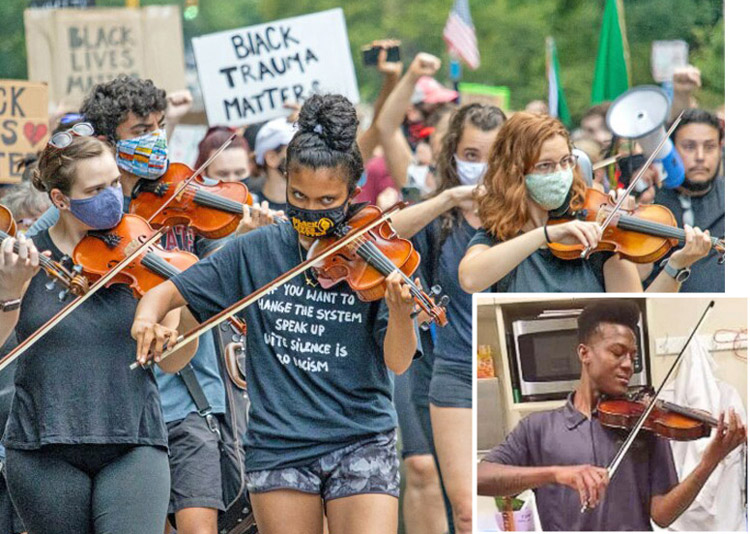More than four years since Elijah McClain died after being brutalized by police in Aurora, Colorado, a jury Oct. 12 unanimously found police officer Randy Roedema guilty of criminally negligent homicide and third-degree assault. He will be sentenced Jan. 5.
Cop Jason Rosenblatt, on trial with Roedema, was found not guilty. The trial of a third officer, Nathan Woodyard, charged with reckless manslaughter and criminally negligent homicide began Oct. 17.
Two Aurora Fire Rescue paramedics, Peter Cichuniec and Jeremy Cooper, will have separate trials in November on the same charges as Woodyard.
A cover-up of the facts in the death of McClain was organized by authorities immediately after his brutalization. It was only through a fight by his family and protests by working people and youth in Aurora and other cities that indictments were brought.
Elijah McClain, a 23-year-old African American, was a massage therapist and musician. He often played his violin for the animals at local shelters to help soothe them.
On Aug. 24, 2019, McClain was walking home after buying iced tea — listening to music and wearing a balaclava to keep warm, as he suffered from anemia.
After receiving a complaint about a young Black man who “looked sketchy,” the three cops stopped him.
Rosenblatt and Roedema threw McClain, who was unarmed, to the ground, pinned him down, and Roedema put his arm in a hammerlock. Rosenblatt and Woodyard both applied carotid control holds, which deprive the brain of oxygen, all the while kneeling or sitting on him as they handcuffed him.
The body camera video shows McClain desperately, and seemingly apologetic, telling them he couldn’t breathe. Without examining him, paramedics Cichuniec and Cooper gave him a shot of the sedative ketamine, even though McClain hadn’t moved for a minute. The dose they gave him was meant for a person 50 pounds heavier.
McClain had a heart attack and died in the hospital three days later.
The Adams County district attorney announced three months later no criminal charges would be filed and that an autopsy concluded McClain died by “undetermined” causes.
But McClain’s mother, Sheneen McClain, and father, LaWayne Mosley, continued to fight. “Elijah believed in humanity,” McClain said. “The Aurora police and medics who murdered my son must be held accountable,” declared Mosley.
On June 27, 2020, thousands turned out to press for those responsible to be charged. They included a number of violinists, who came from all around the country to play to honor Elijah McClain. Even when police confronted and pepper-sprayed them, they continued to play. Violin concerts were organized all across the U.S. to focus attention on the case.
Amid the outcry, Colorado Gov. Jared Polis appointed a special prosecutor and in September 2021 a grand jury returned a 32-count indictment against the three officers and two paramedics. The next month McClain’s family was awarded a $15 million settlement from the city of Aurora.
In Roedema’s and Rosenbatt’s trial, an independent autopsy was introduced that showed McClain’s death was caused by “complications following acute ketamine administration during violent subdual and restraint by law enforcement, emergency response personnel.” It said his death was a homicide.


